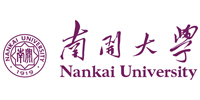
The geography and culture of higher education institutions are important factors when attracting and integrating international leaders
A third of professional leaders have international work experience, a third have international education experience and a quarter have both, according to British Council research that looked at the higher education pathways of leaders from different sectors around the world.
In a session during the 2022 THE Leadership and Management Summit, Christopher Cripps, senior adviser of global engagement and diplomatic affairs at Sorbonne University, and Getachew Engida, co-president of the China-Africa Leadership Development Institute at Tsinghua University, discussed their journeys as leaders of higher education institutions and considered internationalisation’s impact on reputation.
“My bachelor’s degree was in French and international relations, so I was toying with the idea of becoming a diplomat,” Cripps said. “I ultimately decided this wasn’t what I wanted to do, but it was the start of my international journey.”
“My international journey also happened by accident,” Engida said. “There wasn’t really any long-term planning. But I had drive, grit and a willingness to take opportunistic, bold decisions.”
The speakers also touched on the challenges that come with pursing an international career path. “When working in a country that is different to the one you grew up in, it can create a feeling of being an imposter,” Cripps said. “I had to come to grips with the fact that I was different. Eventually, I decided that my biggest asset was my difference.”
“I have had a slightly different experience,” Engida said. “I’ve never felt like a foreigner anywhere I’ve been. You can take leadership for blending into different environments. It’s about managing culture and having an open mind.”
Personal sacrifices may also have to be made. “I did have to leave friends and family behind in the US, but the real personal challenges started when I was working in France,” Cripps explained. “After four or five years, I had to decide if my transition was going to be a permanent one. I had to build my personal life after developing my professional, ex-pat one.”
“There are advantages and disadvantages to ex-pat life,” Engida acknowledged. “My children have an international outlook now; [they are] able to integrate into all parts of the world. But their biggest difficulty is that they don’t have a place they call home.”
When deciding whether to pursue international education or career pathways, it is important to not just consider the country but also the culture of an institution. “At the country level, you need to be willing to learn the language, for example,” Engida said. “But you also need to do your homework, no matter how experienced you may be, about a particular institution, otherwise you will quickly be viewed as an outsider. Even coming in as a CEO or chancellor, you need to understand the existing value system before you can determine what should be retained and what needs to change.”
The speakers went on to discuss the benefits that international higher education leaders can bring to institutions. “People like me would probably refer to themselves as ‘lifelong learners’,” Engida said. “You bring experience and a willingness to lead change and to engage – with humility, of course. Building trust and confidence in a particular institution is underpinned by years of work to understand different cultures. This is something that international higher education leaders can offer.”
“I think one of the advantages I’ve offered through my work is simply by virtue of not being part of the existing system,” Cripps said. “This means I can bring something different. I challenge my colleagues in a different way. My cultural facilitation is another benefit. You become a mediator that lets you take your institution to new places that they may not have gone to on their own.”
Cripps added that there was a noticeable difference between higher education leaders who studied abroad as undergraduates or postgraduates and those who took up international roles later in their careers. “Those who move abroad earlier are more accepting, flexible and might learn languages faster,” he said. “But the experience that older leaders from other regions can bring shouldn’t be underestimated.”
For universities to make the most of international higher education leaders, they must ensure they are welcoming to individuals coming from abroad. “With any expatriation, you have to prepare people,” Cripps explained. “You’ll need relocation services and coaching. You need an entire onboarding system.”
“Universities in the West are fairly open about taking on leaders from abroad,” Engida said. “In other parts of the world, things may not be so easy. Going forward, despite many geopolitical difficulties, the world is becoming more and more integrated. There’s no shying away from the fact that more international opportunities are being created today. It’s essential that institutions are open to them.”








